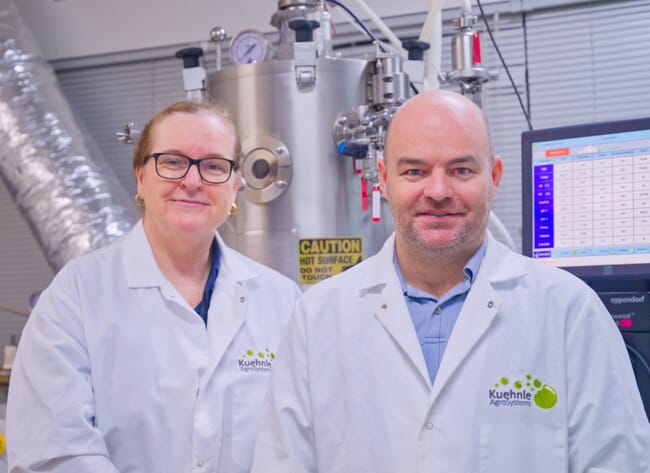
© Gordon Wallace
Astaxanthin is a key component in feeds for farmed salmon and shrimp. The Series A2 funding round, which was led by S2G Ventures, will accelerate the commercialisation of the patented process, which uses dark fermentation in closed vertical tank systems to produce high-quality natural algae astaxanthin.
According to KAS*, through utilising a more sustainable feedstock and production method than current natural and synthetic astaxanthin production methods, their process results in lower production costs, higher yields, faster growth times, and less water and energy consumption.
Astaxanthin is a carotenoid with antioxidant properties present in natural aquatic algae, which is consumed by salmonids and shrimp and gives these species their characteristic red colour. In aquaculture systems, which produce over 50 percent of the seafood we eat globally, astaxanthin is incorporated to provide similar pigments. However, 95 percent of astaxanthin currently used in aquaculture feed is synthetic and derived from petrochemicals.
KAS aims to replace synthetic with natural algal astaxanthin, addressing a market that is estimated to be valued at around $3.7 billion.
"Strong consumer preference for natural inputs is expected to accelerate the transition from synthetic to natural astaxanthin," said Claude Kaplan, chief executive officer of KAS, in a press release.
"With our ability to generate greater astaxanthin output volumes, quicker and at a reduced cost compared to light-dependent methods, this funding strongly positions KAS to respond to the rapidly expanding needs of the market."
“KAS's fermentation breakthrough, natural strain development process, and sustainable production method all have the potential to transform the natural astaxanthin market, a key input for more sustainable aquaculture practices that can drive better outcomes for people and the planet," said Larsen Mettler, managing director of S2G Ventures.
"We are proud to be part of KAS's journey and look forward to supporting the impact they are poised to make in the market."
Global ambitions
KAS will initially launch with its European-based production partner with the capacity to distribute globally. This new funding will enable KAS to exploit its ability to use standard fermentation equipment, to swiftly expand production through leveraging contract manufacturers, with the option to bring production in-house in the future. And while KAS’ process is inherently more resource efficient than competitors, the company’s technology also holds future potential for recycling the gas generated during fermentation to produce feedstock to be fed back into the fermentation process, creating fully circular algal products.
*KAS is part of Aqua-Spark and Hatch's investment portfolios, but The Fish Site retains editorial independence.




